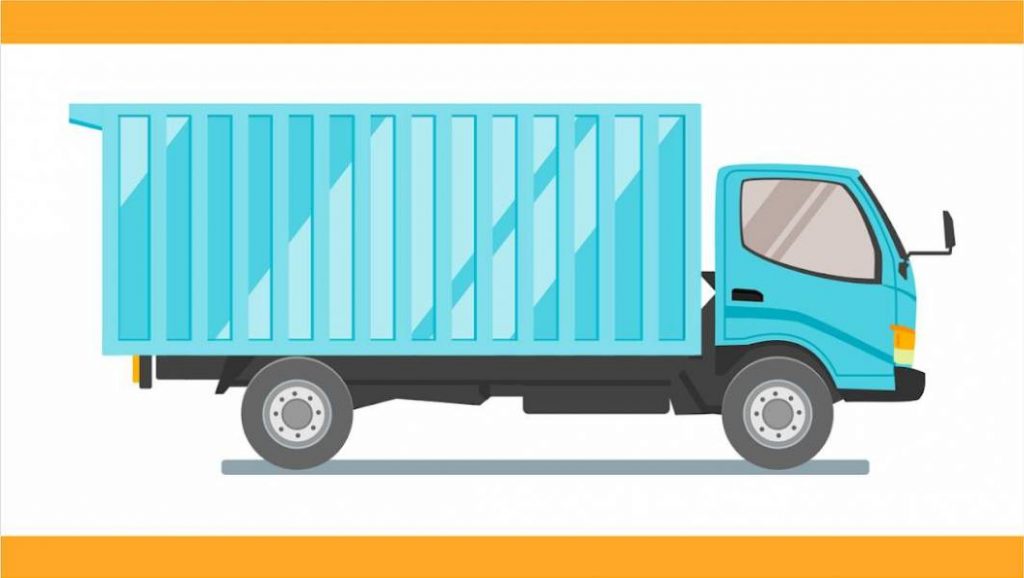70% of all freight is transported through trucks. This equals billions of dollars of worth of goods transported annually. This growth in the trucking industry has grown the interest amongst entrepreneurs about starting a trucking company and focusing on overlooked areas or niches. In fact, the growth of the trucking industry has led to a shortage of drivers, rising freight charges and poorly functioning operational chains not able to cater to the rising demand – hence giving new companies even more incentive to start their own trucking company.
In order to help aspiring entrepreneurs, compiled below is a list of tips that they can undertake in order to start their own trucking company successfully:
Complete your business plan and prep accordingly
When individuals start a trucking business, they usually begin with a truck of their own and should obtain a commercial driver’s license and begin work themselves in order to understand the ground realities of the trucking industry. Once the basic ground work is done, the entrepreneur should select a target market and identify a niche within the market that has been overlooked. It is crucial to select a niche because your new business ought to try and avoid competition from established players. After selecting a niche, the company ought to identify their rates per mile depending upon the load, freight lane and operational expenses.
Figure out an operational plan for trucking
An operational plan would have to be concrete and meticulously thought-out as it would decide the future of your trucking company and its operations. It is ideally supposed to include all business processes, sales strategies, marketing plan, fleet management strategies, human resources plan, etc. It needs to include other details and intentions as to whether your company would be dealing in long haul or short haul services, whether you would lease your trailers or purchase them, whether you plan to expand in the future, etc. It may also include details about your market analysis and service analysis accordingly.
Maintenance is another concern you must address in your operational plan to ensure the longevity and efficiency of your fleet. Collaborating with a repair and modification service for beverage trucks can provide specialized solutions to keep your vehicles in top condition, minimizing downtime and ensuring consistent performance. This proactive approach not only enhances reliability but also supports the scalability of your business as it grows. A well-maintained fleet plays a crucial role in building trust with clients and maintaining a competitive edge in the market.
Complete all legalities
Once you have created the base plan for your trucking company, you need to make sure you sort out all the legal aspects of running and operating a trucking business. There are a number of requirements by the Federal Motor Carrier Safety Administration including obtaining commercial driver licenses. For Pennsylvania-based trucking companies understanding DOT compliance regulations in Pennsylvania is also crucial as it may include specific state-level requirements on top of federal standards. As a trucking company owner, you must stay on top of these evolving rules to avoid fines and ensure safe operations. These requirements are listed as follows:
- Obtaining a USDOT number: This gets your business registered with the FMCSA
- Obtaining a motor carrier authority number: This gets your business registered with the FMCSA and is in fact paired with obtaining your USDOT number
- Obtaining a unified carrier registration or UCR: This is necessary to validate your insurance coverage in every state that you operate in
- Obtaining international registration plan or IRP license: This is issued by the state in which your trucking business is registered and by obtaining this, you get validated by your home state to conduct business in all states in the United States.
- Obtaining heavy highway use tax return form: This is necessary if your trucks or vehicles on the highway weigh a minimum of at least 55,000 pounds.
- BOC-3 filing: This gives you the authority to operate your business interstate.
- Registering electronic logging devices: All carriers that are non-exempted are supposed to maintain and install electronic logging devices that are registered with the FMCSA
- Obtaining international Tax Fuel Agreement membership: This is necessary as it allows your business to get a fuel license and allows you to use fuel based tax returns in your home state.
- Obtaining a standard carrier alpha code: This is necessary to obtain as it is a unique code dedicated to different transport businesses and companies.
Deciding how to fund your business
This is probably the most crucial step in starting your trucking company as all of these endeavors would only be possible if you are able to fund your business in the first place. You may have to decide whether you’d be funding your business yourself, drawing a loan, taking investments or plan any other arrangements accordingly. On an average, starting a trucking company for a niche may cost you anywhere between 25,000 to 30,000 USD in order to cover expenses for insurance, vehicle costs, permits, operational costs, etc. You may need to generate enough cash in the beginning to survive for a couple of months.

Founder Dinis Guarda
IntelligentHQ Your New Business Network.
IntelligentHQ is a Business network and an expert source for finance, capital markets and intelligence for thousands of global business professionals, startups, and companies.
We exist at the point of intersection between technology, social media, finance and innovation.
IntelligentHQ leverages innovation and scale of social digital technology, analytics, news, and distribution to create an unparalleled, full digital medium and social business networks spectrum.
IntelligentHQ is working hard, to become a trusted, and indispensable source of business news and analytics, within financial services and its associated supply chains and ecosystems













